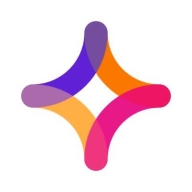

Jitterbit Harmony and Oracle Data Integrator Cloud Service compete in data integration. Jitterbit Harmony has the upper hand in pricing and support, while Oracle Data Integrator Cloud Service offers superior features.
Features: Jitterbit Harmony features an intuitive design, robust API integration, and pre-built Salesforce connectors. Oracle Data Integrator Cloud Service excels with advanced data transformation, comprehensive cloud integration, and native Oracle product support.
Room for Improvement: Jitterbit Harmony could enhance its scalability, expand integration options, and improve complex data handling. Oracle Data Integrator Cloud Service may improve its user interface, simplify deployment procedures, and reduce dependency on Oracle products for a broader appeal.
Ease of Deployment and Customer Service: Jitterbit Harmony offers straightforward deployment with strong customer support, enhancing accessibility. Oracle Data Integrator Cloud Service, while feature-rich, involves a more complex setup. Jitterbit's focus on deployment efficiency and support simplifies the customer journey.
Pricing and ROI: Jitterbit Harmony provides a cost-effective setup, offering quick ROI due to ease of use. Oracle Data Integrator Cloud Service requires a larger initial investment, though its extensive capabilities can yield substantial ROI in complex operations.


Jitterbit Harmony is a comprehensive platform for data integration and API management, enabling seamless synchronization and automation across cloud-based and on-premises applications.
Users leverage Jitterbit Harmony to integrate systems like ERP and CRM applications, simplifying complex data workflows and enhancing automation. It supports efficient data migration and ensures smooth connectivity, handling diverse integration needs and helping streamline business processes. Users emphasize its drag-and-drop functionality and extensive templates, which contribute to its robust performance. However, improvements are needed in data mapping, error message clarity, and documentation, especially when dealing with large data volumes.
What are the key features of Jitterbit Harmony?Companies across retail, manufacturing, healthcare, and finance sectors use Jitterbit Harmony to integrate critical applications and automate workflows. In retail, it connects inventory systems with sales platforms, reducing manual effort. Manufacturers sync their ERP systems with supply chain software, optimizing operations. Healthcare organizations integrate patient management systems with insurance databases, streamlining patient care. Financial institutions use it to connect accounting software with banking systems, ensuring real-time financial data exchange.
Oracle Data Integrator Cloud Service provides pushdown data processing; high performance ETL with less data movement which is best for the Cloud. Oracle Data Integrator Cloud Service executes data transformations where the data lies without having to copy data unnecessarily to remote locations.
We monitor all Cloud Data Integration reviews to prevent fraudulent reviews and keep review quality high. We do not post reviews by company employees or direct competitors. We validate each review for authenticity via cross-reference with LinkedIn, and personal follow-up with the reviewer when necessary.